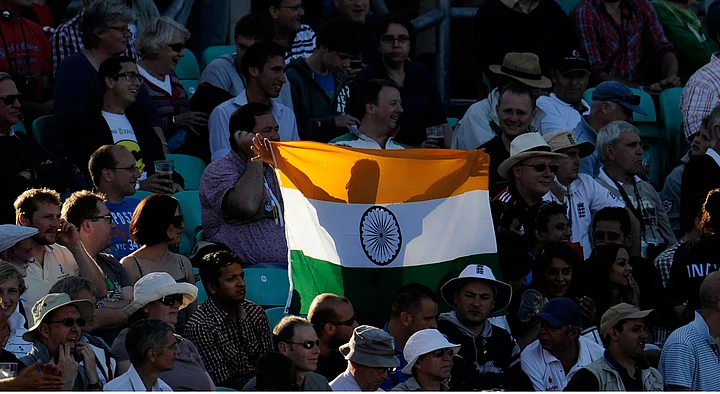The same year Judhajit Basu arrived in London, freshly armed with an engineering degree from the erstwhile Bengal Engineering College in Shibpur, Lily and Chandran Tharoor of Pallakad also welcomed a son in their midst in London. Whilst Judhajit was putting to use his engineering skills garnered on the banks of the Hooghly in a variety of jobs along the tributaries of the Thames, completely unknown to him Shashi Tharoor was working his way into the famed portals of St Stephen’s College in Delhi.
Today, a retired Judhajit lives in a two-room apartment in South Croydon with his wife and his only son has flown the nest and pitched his tent in posh Richmond. Judhajit travels once a year to Kolkata and is fairly content with the Overseas Citizen Card granted to him by the Indian government. Now, of course, Judhajit knows who Shashi Tharoor is and when confronted with the topic of Tharoor’s Oxford Union speech he has a curious take.
Sense of Loss
Judhajit concurs with Tharoor on the ample erosion of employment opportunities in West Bengal in the immediate aftermath of independence. Many of his generation were forced to immigrate to put their education to employable use. Though Judhajit is not bitter about the diminution of opportunities in his homeland, thanks largely to the British reign as put forth by Tharoor, he has more of a permanent emotional scar with the early racism faced in the UK in 1956.
I offer to drive Judhajit to his son Abir’s house in Richmond and on the way he laments that the sort of jobs he had in his early years meant he had very little time to spend with his family. The direct outcome he feels is that Abir never really got fluent in Bengali and is nirokkhor in the script. Now, nirokkhor would roughly translate into illiterate in English, but the ferocity of its utterance from Judhajit betrays a greater loss than just that of the script.
Colonial Past
Abir lives in a detached house in Richmond with his Italian wife, Sophie, who he met while studying Economics at Oxford in the late 1980s. Abir, now as global head of research in a major multinational bank in Canary Wharf, has two touchpoints with India, namely, managing the research inputs of the companies he follows and recruiting for some positions in his team from IIM, Bangalore. Abir hadn’t heard Tharoor’s Oxford Union speech and when I put the salient points to him, he accepted the merit of the argument but more in the nature of a historical quirk.
Abir was an enthusiastic fellow traveller on his parents’ annual sojourns till the time he went to Oxford and since then he has been there only a couple of times mainly for professional pursuits. The inescapable takeaway from my meeting with Abir, besides Judhajit’s lasting disappointment of his shortcomings in imparting a true blue Bengali erudition to Abir, is that much of the content of Tharoor’s speech is only a matter of antique curiosity. It does not touch his heart.
Abir introduced me to Sachit Mehta, a vice-president on Abir’s team. Abir had recruited Sachit from IIM, Bangalore, almost a decade ago. Sachit, a thoroughbred Delhi boy from Kalkaji, who attended St Stephen’s College before IIM, Bangalore, is far more vociferous about Tharoor’s speech. Having come from a debating background himself, he loved Tharoor’s delivery but almost found his arguments as truisms with very little to contribute to the present day discourse.
Also, Sachit has no pangs about his British citizenship being at odds with his Indian identity. For Sachit, the British passport is like the third degree after St Stephens and IIM that he has had to earn. Sachit never felt compelled to stay on in London unlike Judhajit, but it is a matter of firm choice that he exercises and debates with his wife every weekend.
Moving On
As PM Narendra Modi applauds Tharoor’s undoubtedly eloquent speech full of historical actualities, by and large British citizens of Indian origin are stoic about it. They find it engaging and marvel at Tharoor’s prowess over the English language, but are neither filled with rage nor a seething sense of past injustice. Instead many are grateful for opportunities they found in Britain to further their professional endeavours and provide for their families.
Is it thus mere cold-hearted pragmatism that drives British Indians? Is patriotism well and truly dead? Is the British passport the new tool of upward mobility for millennial Indians? Tharoor certainly has provided a welcome intervention to revisit these issues.
(The writer is a London-based lawyer)
